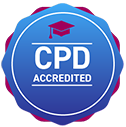A System Approach to Good Pharmacovigilance Practice

Course Information
In today's evolving landscape, pharmacovigilance (PV) systems face ongoing challenges due to global, national, and company-specific events. This course focuses on developing personnel equipped to navigate these complexities and improve the safe use of medicinal products.
We emphasise continuous global thinking, communication, and strategic planning, ensuring adaptability across various levels. The course explores maintaining PV system functionality while adhering to regulatory requirements, from the perspective of the Qualified Person Responsible for Pharmacovigilance (QPPV), quality assurance person and a PV auditor.
Participants will apply European regulatory standards to enhance and sustain PV system effectiveness, contributing to improvement initiatives and ensuring operational integrity.
The course covers PV system intricacies, regulatory compliance, and a 'systems approach' for auditors, quality assurance personnel, and PV practitioners. Through presentations and workshops, attendees gain insights into implementing and maintaining an effective PV system.
Who should attend?
- Auditors
- Pharmacovigilance Quality System Managers
- Pharmacovigilance scientists
- The QPPV.
Course benefits
Throughout the course delegates will explore application of the legal requirements for the PV system and quality system and how to assure these systems. They will demonstrate their ability to contribute to:
- A systematic investigation of the pharmacovigilance system and its quality system
- Examination of how the pharmacovigilance system and quality system interact to achieve compliance.
- The risk-based approach to auditing the PV system and quality system
- The maintenance of 'inspection readiness'
- Explore how to investigate the complex PV system
- Discussions about how to monitor and maintain the PV system and assure compliance.
Course Objectives
Clarify what has to be done:
• Explore application of the legal requirements.
• Understand the role and responsibilities in the implementation of the PV and quality system within an organisation.
Explore how to do what has to be done:
• Adopt a systemic approach to systematically investigate or implement and maintain the PV system and quality system.
• Examine how a compliant PV system and a compliant quality system interact to achieve compliance with regulatory requirements for PV.
• Explore how to investigate the complexity of the PV system.
Discuss how to identify what is missing or what needs to be improved:
• Discuss how to monitor and maintain the PV system and assure compliance.
This course will assist delegates with:
- An understanding of key system principles,
- A practical approach to implementing, maintaining and monitoring the PV system and its quality system
- A procedure to share expertise to increase efficiency and confidence.
This course is structured to encourage delegates to:
- Discuss and develop ideas - Share knowledge and experiences - Solve specific problems.
By the end of the course delegates will be able to:
- Understand better the pharmacovigilance system, its quality system and how the components interact to achieve the objectives of pharmacovigilance
- Investigate, and analyse the pharmacovigilance system and to identify what is missing and what needs to be improved.
- Understand the preparation strategies for a PV aduit/inspection and how to improve their audit/inspection readiness.
Tutors
Tutors will be comprised of (click the photos for biographies):
Jana Hyankova
Jana Hyankova is an expert on pharmacovigilance (PV) with almost 20 years of working experience from several global pharma and service companies. Jana joined iVigee in 2023 and currently holds position of Head of PV department. She serves in EU QPPV and UK QPPV role and conducts PV audits for clients. Prior to joining iVigee, she held managerial pharmacovigilance roles at service company PrimeVigilance (former PharmInvent) as well as pharma companies (Bristol Myers Squibb, PharmaSwiss SA later Valeant Pharmaceutical International). Jana is a Medical Doctor who gained her medical education at the Charles University in Prague, Czech Republic. Outside of iVigee Jana is chairing PV Committee under Research Quality Association (RQA). She is an active speaker on conferences and courses for various associations such as the RQA, PIPA, ISoP and Conforum. She has also numerous publications in various scientific journals.
Biog to follow
Biog to follow
Programme
Please note timings may be subject to alteration.
Day 1
08:30
Welcome, registration, course objectives and introduction to work groups
Housekeeping notices, meet other delegates, explore how to work in your work group, course objectives. Clarify the definition and objectives of Pharmacovigilance.
09:30
The Regulatory Framework for Pharmacovigilance
Identify the relevant regulations and directives. Explore GVP guidance, structure of the modules and standard format of each module.
10:00
The PV System and its Quality System I
Exploration of how to organise what has to be done, communications. Exploration of the structures and processes for pharmacovigilance.
10:45
Break
11:15
The PV System and its Quality System II
Common PV audit/inspection findings on Quality System for PV.
11:30
Workshop 1 and Feedback
Exploring an organisation model of the pharmaceutical company - cooperation between PV and internal stakeholders.
12:15
Role of the Qualified Person Responsible for PV
Exploration of the legal responsibilities of the QPPV and the Marketing Authorisation Holder (MAH). Common PV audit/inspection findings on QPPV.
13:00
Lunch
14:00
Workshop 2 and Feedback
Exploring an organisational model of the pharmaceutical company - cooperation between PV and external stakeholders.
14:30
The Pharmacovigilance Safety Master File (PSMF) I
Construction of the PSMF and its purpose.
15:30
Break
16:00
The Pharmacovigilance Safety Master File (PSMF) II
Common PV audit/inspection findings on PSMF.
16:15
Workshop 3 and Feedback
Description of PV System.
17:00
End of Day
Day 2
09:00
Risk Management System: Risk Management Plans (RMP), Risk Minimisation Measures (RMM) and Safety Communication I
Understanding the management of an RMP, cornerstone of PV safety communications, and direct healthcare professional communication, and the required quality systems.
09:45
Workshop 4 and Feedback
Safety communication strategies.
10:15
Risk Management System: Risk Management Plans (RMP), Risk Minimisation Measures (RMM) and Safety Communication II
Common PV audit/inspection findings on Risk Management System.
10:30
Break
11:00
Periodic Safety Update Reports (PSURs)/Periodic Benefit Risk Evaluation Reports (PBRERs)
Regulatory and quality requirements, exploring good practice, report format, reference safety information, schedule of submission, analysis evaluations and distribution. Common PV audit/inspection findings on PSURs.
12:00
Lunch
13:00
Workshop 5 and Feedback
To explore the compilation and submission of the PSUR.
13:45
Processing of Safety Data
Exploration of safety data collection, processing and reporting, quality and data management. Common PV audit/inspection findings on data collection, processing and reporting of safety data.
15:00
Break
15:30
Signal Management
Exploration of regulatory requirements and good practice in signal management process and the quality requirements. Common PV audit/inspection findings on signal management.
16:30
Post-Authorisation Safety Studies (PASS)
Explorations of provisions for post-authorisation safety studies applicable in the European Union (EU), including legal framework, quality systems and PASS process. Common PV audit/inspection findings on PASS management.
17:00
End of Day
Day 3
08:30
The Pharmacovigilance Risk Assessment Committee (PRAC)
Exploration of how good practice is achieved. Composition, role and responsibilities. Examples of referrals.
09:15
Regulatory Inspections
Exploration of types of PV and inspections, how to prepare for inspections and do's and don’ts.
09:45
Workshop 6 and Feedback
Preparation for a regulatory inspection
10:30
Break
11:00
PV Audits
Exploration of requirements regarding risk-based PV audits, defining risk-based approach, and how to prepare for audits. Common PV audit/inspection findings on PV Audits.
12:00
Workshop 7 and Feedback
Preparation for the QPPV audit/inspection
13:00
Lunch
14:00
Corrective and Preventive Action (CAPA) Plan
Preparation of responses to inspection and audit findings, management of CAPA plans and effectiveness check. Common PV audit/inspection findings on CAPA management.
14:30
Break
15:00
Workshop 8 and Feedback
Preparation of a CAPA.
15:30
End of course
Extra Information
Course material
Course material will be available in PDF format for delegates attending this course. The advantages of this include:
- Ability for delegates to keep material on a mobile device
- Ability to review material at any time pre and post course
- Environmental benefits – less paper being used per course.
The material will be emailed in advance of the course and RQA will not be providing any printed copies of the course notes during the training itself. Delegates wishing to have a hard copy of the notes should print these in advance to bring with them. Alternatively delegates are welcome to bring along their own portable devices to view the material during the training sessions.

Madingley Hall
Accommodation and dinner are available for the dates of the course (we recommend you take this as the location has few nearby facilities).
If you wish to stay for additional nights or double occupancy, please contact the us -courses@therqa.com in the first instance.
- Bed and Breakfast: £102*
- Dinner (three courses with drinks, in the main dining room with other course participants): £48*
*These can be selected during the booking process, based on per person, per night.
As part of the booking process we ask for dietary requirements and these will be taken in to consideration by Madingley Hall. Alternatively bar snacks are available on a pay as you go basis, not bookable through RQA.
Please note that all venue and accommodation enquiries should be sent directly to RQA.

CPD Points
23 Points
Development Level
Develop
Recommended Products
Management of the Training and Competency of Personnel in GxP and Research Environments eBooklet
Pharmacovigilance Auditing eBooklet









